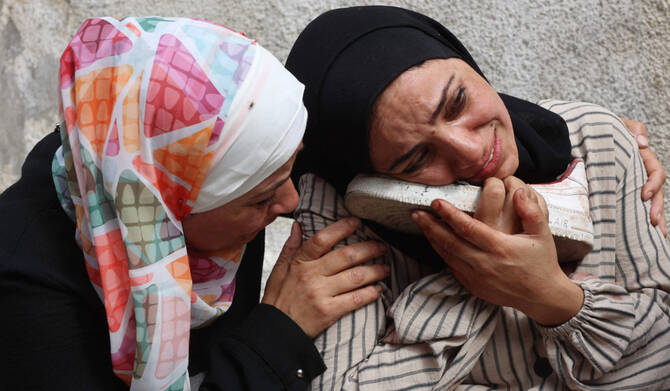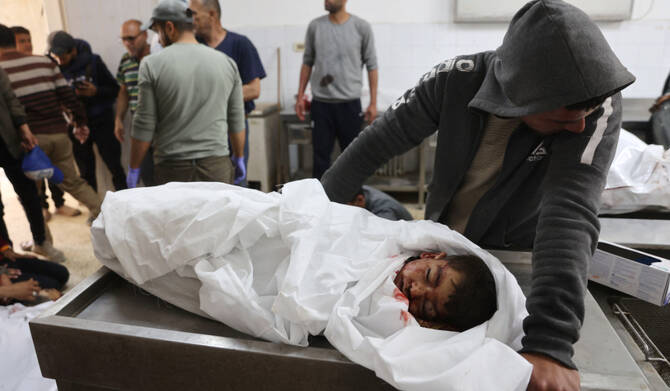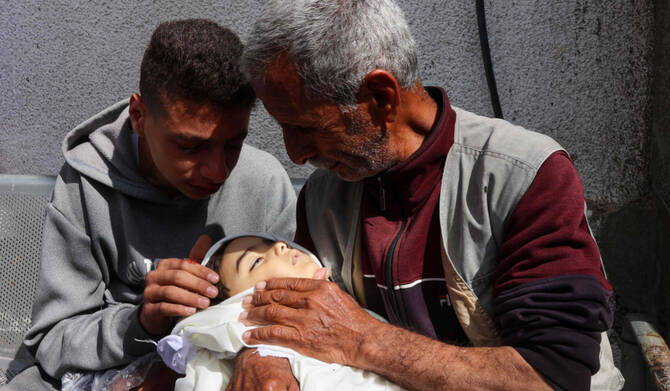CAIRO: Negotiations held in Cairo to reach a ceasefire in Gaza were on the verge of a "significant breakthrough," two Egyptian security sources told Reuters on Monday.
There was no immediate comment from Israel and Hamas. Axios reporter Barak Ravid said in a brief post on X that an Israeli official denied the reported breakthrough, without giving further details.
The Egyptian sources said there was a consensus on a long-term ceasefire in the besieged enclave, yet some sticking points remain, including Hamas arms.
Hamas repeatedly said it was not willing to lay down its arms, a key demand by Israel.
Earlier, Egyptian state-affiliated Al Qahera News TV reported that Egyptian intelligence chief General Hassan Mahmoud Rashad was set to meet an Israeli delegation headed by strategic affairs minister Ron Dermer on Monday in Cairo.
The sources said the ongoing talks included Egyptian and Israeli delegations.
Mediators Egypt and Qatar did not report developments on the latest talks. Qatar Prime Minister Sheikh Mohammed bin Abdulrahman Al Thani said on Sunday that a recent meeting in Doha on efforts to reach a ceasefire made some progress, but noted there was no agreement yet on how to end the war. He said the militant group is willing to return all remaining Israeli hostages if Israel ends the war in Gaza. But Israel wants Hamas to release the remaining hostages without offering a clear vision on ending the war, he added. The media adviser for the Hamas leadership, Taher Al-Nono, told Reuters on Saturday that the group was open to a years-long truce with Israel in Gaza, adding that the group hoped to build support among mediators for its offer.
Speaking at a conference in Jerusalem on Monday night, before Reuters reported that there had been progress in the talks, Dermer said the government remained committed to dismantling Hamas' military capability, ending its rule in Gaza, ensuring that the enclave never again poses a threat to Israel and returning the hostages.
Israel resumed its offensive in Gaza on March 18 after a January ceasefire collapsed, saying it would keep up pressure on Hamas until it frees the remaining hostages still held in the enclave. Up to 24 of them are believed to be still alive.
The Gaza war started after Hamas' October 7, 2023, attack which killed 1,200 people and resulted in 251 hostages being taken to Gaza, according to Israeli tallies. Since then, Israel's offensive on the enclave killed more than 52,000, according to local Palestinian health officials.

























